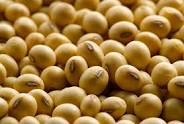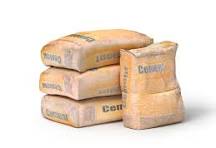Glazed Ceramic Tiles Production in Nigeria, The Feasibility Report.

The ceramic industry in Nigeria can be classified into the glass sector, Lime /Cement/ Gypsum sector, white wares and porcelain enamels and refractory and structural clay product sector.
The first group, glass is, as expected, the largest and the most successful. Nigeria has had glass factories for over 30 years. There are at least eight of them located in six states and producing mainly containers for beverages, cosmetics and pharmaceuticals as well as louvre blades and hurricane lantern globes.
Lime, cement, and white wares (pottery) are among the earliest major industries to be established in the country, and they were also initially owned by government. Of these three, cement was the first and is probably still the only one that exists as a Large Scale Enterprise (LSE) Nigeria’s first cement plant, was the Nigerian Cement Company (NIGERCEM).
Ceramic tiles fall under the structural clay product sector. Nigeria is largest manufacturer of ceramic tiles in West Africa.
Tiles form an essential and integral part of consuming sector like housing, educational /research institutions, hospitals, Industries, hotels, restaurants, cinema halls and other public places. The demands of these product also increase by the need of renovation works of the old above similar buildings.
Ceramic glazed tiles are mixtures of clay, quartz, feldspar and other natural materials that are shaped into slabs and fired at a high temperature of about 1200’ C. Over sixty- five million square meters of ceramic tiles are imported into Nigeria according to Ceramic World review magazine published in Italy while combined local production capacity is about 100,000 – 150,000 Sq Metres of tiles per day.
It is showing a growth rate of 10 – 12% per annum. Over the years, the industry has witnessed a surge in demand, largely attributed to the increased awareness about the hygiene factor coupled with a greater emphasis laid on ambience.
The ever increasing deficit in housing supply in Nigeria which is estimated at over sixteen million (16,000,000) units and the need for the construction of other important infrastructure if the country is to meet up with the vision 20:2020 project of becoming amongst the top 20 economies in the world by 2020 continues to drive the need to ceramic tiles, an essential construction raw material.
This report seeks to confirm the financial viability or otherwise of establishing a glazed ceramic tiles production plant in Nigeria capable of producing a vast range of tile sizes.
The plant would operate at seventy-five percent (75%) of the installed capacity of ten thousand square meters (10,000 m2) /day (24 hours) in a day for three hundred (300) days per annum and producing 375,000 square meters (m2) of 30*30 cm, 40*40 cm, 50*50 cm, 60*60 cm & 80 *80 cm glazed ceramic tiles size bi-monthly.
The raw materials required for production of glazed ceramic tiles includes Clay, Feldspar, Quartz, Glaze, Natural gas and Water.
In Nigeria, the market for glazed ceramic tiles can be classified into two segments institutional (accounting for 30 per cent) and retail (rest 70 per cent). The institutional segment is characterized by low operating margins, long credit periods and a high inventory turnover. The retail segment is characterized by high selling and distribution costs, and good margins and credit recovery.
Table of Contents
EXECUTIVE SUMMARY 1.0 Business Overview 1.1 Description of the Business 1.2 Vision and Mission Statement 1.3 Business Objective 1.4 Value Proposition 1.5 Critical Success Factor of the Business 1.6 Current Status of Business 1.7 Description of the Business Industry 1.8 Contribution to Local and National Economy 2. Marketing Plan 2.1 Description of product 2.2 Product Packaging and delivery 2.3 The Opportunity 2.4 Pricing Strategy 2.5 Target Market 2.6 Distribution and Delivery Strategy 2.7 Promotional Strategy 2.8 Competition 3. Production Plan 3.1 Description of the Location 3.2 Raw Materials 3.3 Production Equipment 3.4 Production Process 3.5 Production Cost 3.6 Stock Control Process 3.7 Pre-Operating activities and expenses 3.7.1 Operating Activities and Expenses 3.8 Project Implementation Schedule 4.0 Organizational and Management Plan 4.1 Ownership of the business 4.2 Profile of the promoters 4.3 Key Management Staff 4.3.2 Management Support Units 4.4 Details of salary schedule 5. Financial Plan 5.1 Financial Assumption 5.2 Start- up Capital Estimation 5.3 Source of Capital 5.4 Security of Loan 5.5 Loan Repayment Plan 5.6 Profit and Loss Account 5.7 Cash Flow Analysis 5.8 Viability Analysis 6.0 Business Risks and SWOT Analysis 6.1 Business Risks 6.2 SWOT Analysis
Project Specification:
Additional Info
Get this Report
Direct bank transfer
To order the report, Please do pay the sum of ₦450,000 into
Account Name : Foraminifera Market Research Ltd
Account Number : 274 20 569 37
Account Name : Foraminifera Market Research Ltd
Account Number : 101 76 603 95
Account Name : Foraminifera Ventures
Account Number : 011 66 066 32
Make your payment directly into our bank account. Please use your Order ID as the payment reference. Your order will not be shipped until the funds have cleared in our account.
Instructions
After payment call us on 01 -29 52 413 / 08033782777 or email us at foraminiferamarketresearch@yahoo.com with the payment details. After payment confirmation, the soft copy of the report would be sent to you within 24 hours.


